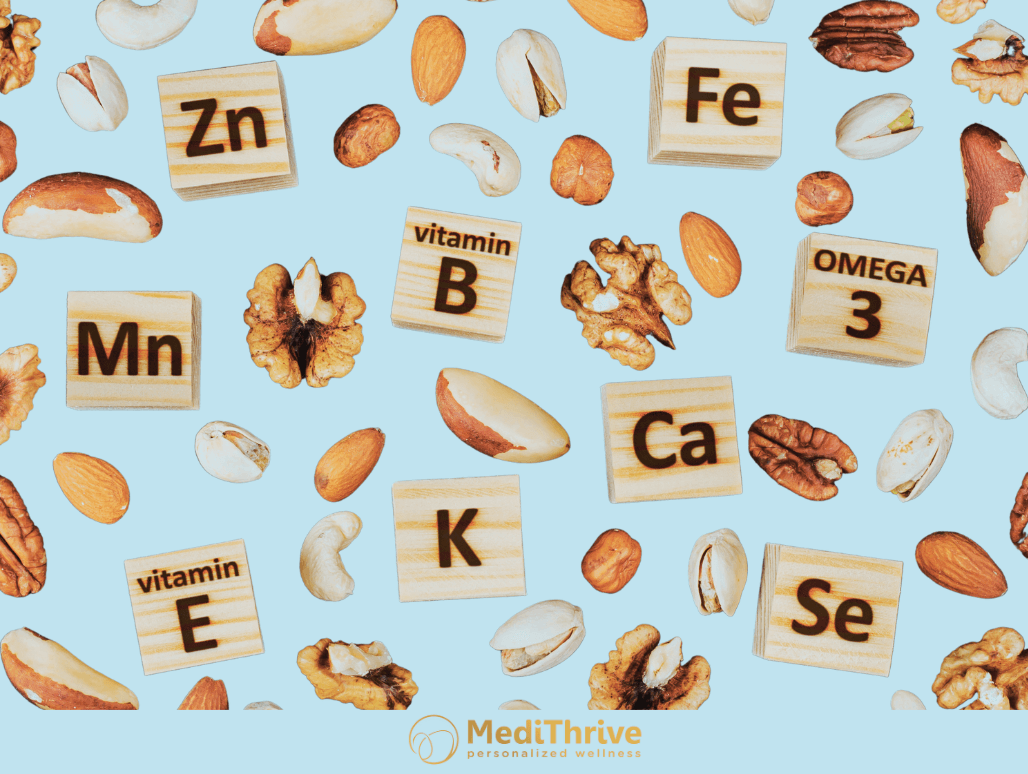Testosterone is often associated with masculinity, but it’s an important hormone for both men and women. In men, testosterone supports muscle mass, energy, libido, and bone health. In women, it plays a role in mood, bone density, sexual function, and maintaining lean muscle mass. Low testosterone, or “Low T,” can affect individuals of both genders, leading to a range of symptoms and health issues.
In this blog, we’ll dive into the symptoms of low testosterone, how it impacts both men and women, and what steps can be taken to boost testosterone levels.
What is Low Testosterone?
Testosterone is a steroid hormone that plays a key role in regulating mood, energy, muscle strength, libido, and many other aspects of health. In both men and women, testosterone levels typically peak in early adulthood and decline with age. However, certain conditions, lifestyle factors, and environmental influences can lead to abnormally low levels of testosterone earlier than expected, resulting in a variety of physical and emotional symptoms.
Symptoms of Low Testosterone in Men and Women
Although testosterone is considered a “male” hormone, women also rely on it for overall well-being. Here’s how low testosterone can affect both genders:
Low Testosterone Symptoms in Men
In men, testosterone is essential for muscle mass, bone density, mood regulation, and sexual function. When testosterone levels dip, men may experience symptoms like:
- Low Energy and Fatigue: Reduced testosterone can lead to persistent fatigue, making it difficult to complete daily tasks.
- Decreased Libido: A noticeable drop in sexual desire is one of the most common symptoms of low testosterone.
- Erectile Dysfunction: Testosterone plays a key role in achieving and maintaining erections, so low levels can lead to difficulties in this area.
- Loss of Muscle Mass and Strength: Testosterone is essential for muscle development. Men with low testosterone often notice a decrease in muscle mass and strength, along with an increase in body fat.
- Mood Changes: Low testosterone can cause mood swings, irritability, and even depression.
- Reduced Bone Density: Testosterone helps maintain bone health. Low levels can lead to weaker bones and an increased risk of fractures.
- Cognitive Issues: Reduced testosterone can impact memory, concentration, and overall mental clarity.
Low Testosterone Symptoms in Women
While women produce much less testosterone than men, it still plays a critical role in maintaining sexual health, muscle mass, mood, and overall vitality. For women, symptoms of low testosterone include:
- Low Libido: Like men, women with low testosterone may experience a diminished sex drive.
- Fatigue and Low Energy: Reduced testosterone can leave women feeling sluggish, even with adequate rest.
- Muscle Weakness and Loss of Strength: Testosterone contributes to muscle mass, so low levels can make it harder for women to maintain or build muscle.
- Mood Swings and Depression: Low testosterone in women can lead to feelings of irritability, sadness, and general emotional instability.
- Reduced Bone Density: Just like in men, women with low testosterone may experience bone loss, increasing the risk of osteoporosis.
- Cognitive Decline: Low levels of testosterone can impact concentration, memory, and mental clarity in women, leading to cognitive difficulties.
Causes of Low Testosterone
Low testosterone can occur for a variety of reasons in both men and women. Some common causes include:
- Aging: Testosterone naturally declines with age, typically starting around the age of 30.
- Obesity: Excess body fat, especially abdominal fat, can reduce testosterone levels.
- Chronic Stress: High levels of cortisol, the stress hormone, can suppress testosterone production.
- Sleep Disorders: Conditions like sleep apnea or poor sleep quality can impact testosterone levels.
- Chronic Illnesses: Health conditions such as diabetes, hypertension, and metabolic syndrome can lower testosterone levels.
- Medications: Certain medications, such as steroids, opioids, and antidepressants, can interfere with hormone levels.
- Endocrine Disruptors: Exposure to chemicals like BPA in plastics, pesticides, and parabens can interfere with hormone production.
How to Boost Testosterone Levels Naturally
There are several lifestyle changes and strategies that can help boost testosterone levels naturally. These approaches are beneficial for both men and women looking to improve their hormone balance and overall health.
- Exercise Regularly
Physical activity is one of the most effective ways to boost testosterone naturally. Strength training and high-intensity interval training (HIIT) have been shown to increase testosterone production. Focus on exercises like weightlifting, squats, lunges, and sprinting to stimulate hormone production. Even regular walking and cardiovascular exercise can help improve overall hormone balance.
- Optimize Your Diet
Your diet plays a significant role in supporting testosterone production. To boost testosterone levels, consider including the following:
- Healthy Fats: Healthy fats from sources like avocados, olive oil, nuts, and fatty fish (salmon, sardines) support hormone production.
- Zinc and Vitamin D: Both zinc and vitamin D are essential for testosterone synthesis. Zinc-rich foods include shellfish, meat, legumes, and nuts, while vitamin D can be obtained from sunlight, fortified foods, and fatty fish.
- Protein: Protein is necessary for muscle growth and recovery, which helps maintain healthy testosterone levels. Include lean meats, eggs, tofu, legumes, and nuts in your diet.
- Vegetables and Antioxidants: Cruciferous vegetables like broccoli, cauliflower, and kale contain compounds that help balance hormone levels.
- Manage Stress
Chronic stress leads to elevated cortisol levels, which can suppress testosterone. Managing stress through relaxation techniques like meditation, yoga, deep breathing, or journaling can help reduce cortisol and support healthy testosterone levels.
Hormone Replacement Therapy (HRT) for Low Testosterone
In some cases, lifestyle changes alone may not be enough to restore optimal testosterone levels. For individuals with significantly low testosterone, Hormone Replacement Therapy (HRT) may be an effective treatment option. HRT involves supplementing the body with bioidentical hormones to bring hormone levels back into a healthy range.
Potential Benefits of HRT
- Improved Mood: Many people experience better mood regulation, less irritability, and a decrease in feelings of depression.
- Increased Libido: Testosterone therapy often restores sexual desire and function, which can be especially beneficial for individuals with low libido.
- Better Energy Levels: TRT can significantly boost energy, reduce fatigue, and improve overall vitality.
- Improved Muscle Mass and Bone Density: For both men and women, HRT may help preserve muscle mass and improve bone strength, reducing the risk of osteoporosis.
Final Thoughts
Low testosterone can significantly impact your quality of life, but there are many ways to boost your levels and improve your health. Whether you’re a man or a woman, adopting a healthy lifestyle that includes regular exercise, proper nutrition, stress management, and sufficient sleep can help support optimal testosterone production. For some, however, making healthy lifestyle changes is not always enough, which is where hormone replacement therapy helps.
If you feel like you are suffering from low testosterone and hormone imbalances, consult with our knowledgeable healthcare team to determine if hormones might be the right solution for you. Join us at MediThrive Personalized Wellness to embark on a journey to vibrant health. We are located at 19109 W. Catawba Avenue Suite 120 in Cornelius, NC. Call (980) 580-6070 to learn more about our personalized approach and tailored wellness solutions or request a consultation today. It’s your time to thrive!







